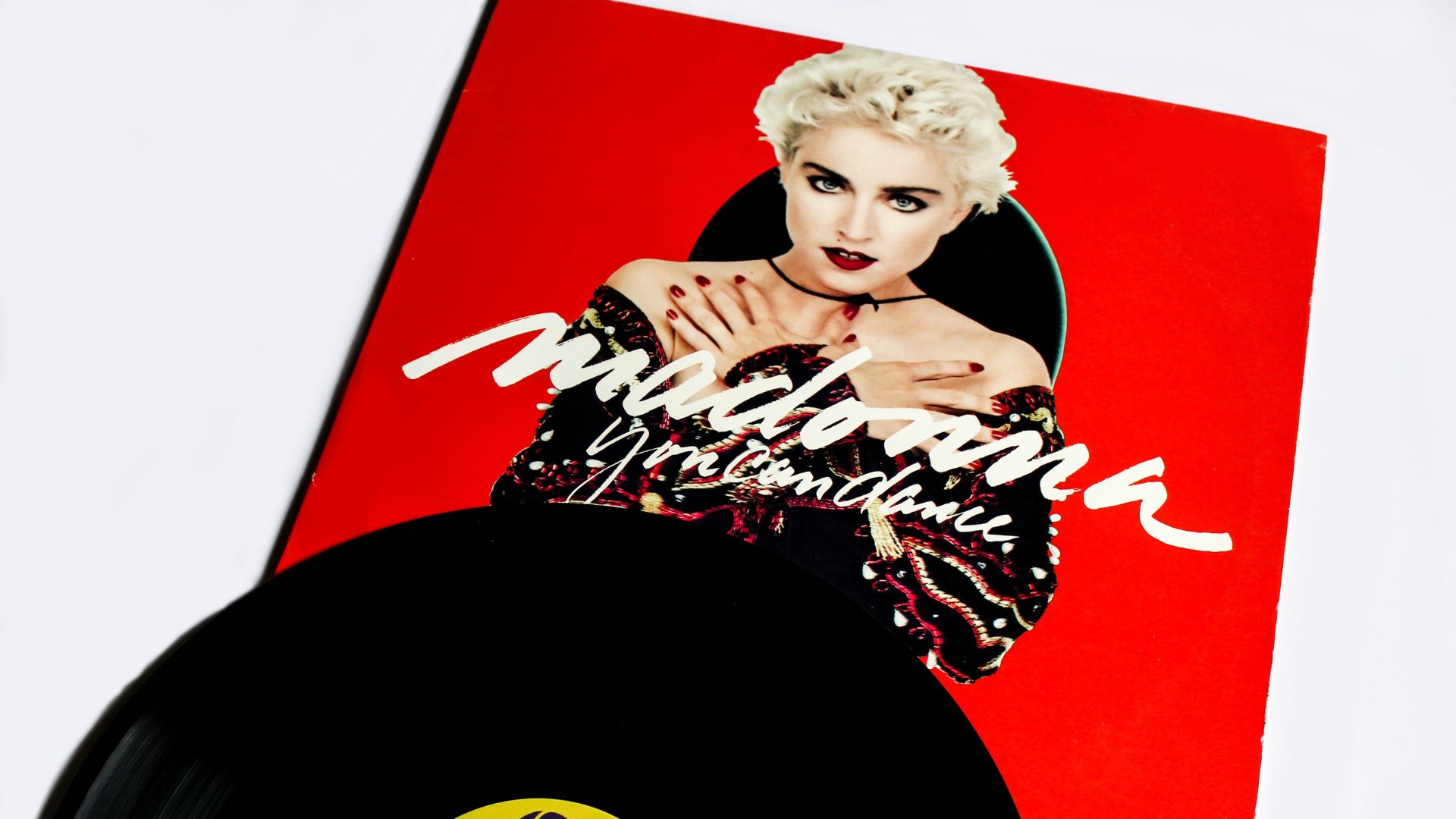Madonna Louise Veronica Ciccone turns 65 on August 16—40 years and one month after the release of her first album, Madonna. Her presence in showbusiness is comparable to those of Sinatra, Elvis, the Beatles, Prince and Michael Jackson, but her impact on popular culture is arguably greater than any of these.
For many, she embodies a toxic environment that sexually commodifies and exploits women, but the fact remains that she has made it to the top in a male-dominated industry and, indeed, a male-dominated culture. She has been the subject of countless academic studies and jargon-packed analyses.
Why has this taboo-breaking provocateur, who enrages conservatives and radicals alike, occupied us for so long?
Succès de scandale
“Here’s what I’ve learned after four decades in music,” she has said. “If they call you shocking, scandalous, troublesome, problematic, provocative or dangerous, you’re onto something.” Exactly when this dawned on Madonna, I don’t know, but I’m guessing it was June 1986. That was when her track “Papa Don’t Preach” was released in the US and Europe and she realized she was onto something … but what?
”Papa don’t preach, I’m in trouble deep/Papa don’t preach, I’ve been losing sleep/But I made up my mind, I’m keeping my baby,” sang Madonna on a tune that many took to be an endorsement of teenage pregnancy and, as one critic put it, “a path to permanent poverty.” Groups opposed to abortion interpreted it as a positive, ”pro-life” song.”
It really didn’t matter what they thought: what mattered was that they differed, often violently, and were prepared to create a commotion. Meanwhile, all Madonna would say was: ”To me, it’s a celebration of life.” The controversy blazed on for several months, unwittingly promoting sales and pushing the single to the top of the charts in the UK, UK and several other countries. The album from which it was taken also became a best-seller. (The song was written by Madonna and Brian Elliott. View and listen here)
Mainstream entertainers had studiously avoided discreditable behavior and the disgrace and notoriety—not to mention malicious gossip and all manner of aspersion—that came from shocking the public for decades. Madonna, on the other hand, seemed to take her cues from the Rolling Stones and the Sex Pistols, neither of whom suffered collateral damage from their mischief in the 1960s and 1970s, respectively.
Madonna emerged without collateral damage, her reputation as social provocateur as well as chanteuse boosted. She appears to have learned a salutary lesson from the “Papa Don’t Preach” episode. Actions that cause general public anger or indignation are precious.
Traditionally, the entertainment industry avoided them. An accusation of sexual assault, although later cleared, annihilated the career of Hollywood star Roscoe Arbuckle all the same; he died penniless in 1933. Mindful of his fate, stars and the studios that employed them were careful to contain any suspicion of scandal. With the exception of Elizabeth Taylor who, in the 1960s, conducted her romance with Richard Burton in public almost theatrically, stars kept as tight a lid as they could on their private lives.
The lesson wasn’t lost on Madonna: do something that upsets, outrages and disgusts some people and gratifies others and they’ll talk about you. And the media will pay attention. It really doesn’t matter if they find you monstrous, just as long as you stay at the fore of their consciousness. Anywhere else and you stand a chance of being ignored and, worse still, forgotten. In show business, the kind of calamities that most people avoid are a valuable resource. Madonna discovered the meaning of succès de scandale and it seems to have hit her like a flash on the road to Damascus. This helps explain why she plunged headfirst into the kind of episodes that had ruined earlier artists.
Shameless
For succeeding decades Madonna seemed, whether by accident or, much more probably, design (and perhaps even fate), to be in a continual state of crisis, not to mention her inflammatory lyrics, demagogic videos, shameless films or risqué book called Sex. Once she found momentum, Madonna never slackened: every new provocation seemed to surpass the previous one.
And all this was happening in that liminal time before the smartphone or social media, but after people had acquired the appetite for salacious gossip and guiltless eavesdropping. Big Brother and other reality TV shows provided a peephole for the audience’s new fascination with the hitherto concealed practices of others. I wonder what Madonna made of Paris Hilton’s 2003 sex tape, drolly titled 1 Night in Paris. Or Kim Kardashian’s analogous coup de théâtre. The stars of both videos were propelled to the stratosphere, yet neither boasted anything resembling talent, at least not talent in the accepted sense of the word. You could almost hear Madonna think: “Why didn’t I think of that?”
Madonna never quite matched this shamelessness, but remember: she played a colossal role in creating the kind of culture in which it might otherwise have been dismissed as a cheap, vulgar and incendiary stunt rather than a major talking point and, in turn, a launchpad for two epic careers. Sex scandals are now a familiar trope of popular culture, though MeToo issued notice that the consequences can be as destructive as well as productive.
Open access
Today, anyone who aspires to be anybody in the entertainment industry has to enter into a Faustian pact. Like the German necromancer, they’re required to surrender their soul in exchange for whatever they think the world has to offer them. Madonna’s soul wasn’t part of her deal: her privacy was. Even before her 1991 film In Bed With Madonna, she’d been unabashed about sharing intimate details. The movie just confirmed that she offered open access.
An inquisitive media and a probing audience soon got used to this and expected the same cooperation from other entertainers. Those who hesitated didn’t make it, and we know nothing about them. Less inhibited wannabe celebs made it onto one of the alphabetical celebrity lists.
There is little in today’s celebrity-fixated culture that Madonna hasn’t either initiated, essayed or trespassed on in some way. Before tabloids started taking a keen and prurient interest in celebrity couples, Madonna married Sean Penn. That was in August 1985, and, as if to provide the media with a foretaste of the performative aspects of coupledom that were to become familiar, she and Penn staged a Grand Guignol at an outdoor ceremony in Malibu. Paparazzi helicopters circled in search of a shot, while Penn fired a few shots of his own – his from a gun. The marriage imploded after two years.
Madonna endured the unwelcome attention of a stalker who threatened to cut her “ear-to-ear.” She puzzled audiences about her sexual preferences by orchestrating an onstage three-way French Kiss with Britney Spears and Christina Aguilera in 2003. Her 2012 Super Bowl halftime appearance didn’t upstage Janet Jackson’s “wardrobe malfunction” but she managed to upset many of the 114 million TV viewers when she thrust a “swivel-on-it” finger at the camera. She was 53 at the time: “Age cannot wither her, nor custom stale.” Comparisons with Cleopatra are not baseless: they both remained fascinatingly attractive, not so much for their beauty but for their unpredictability.
Mother to the generations
The term “postfeminism” wasn’t invented for Madonna, but it could have been. Her spirit of independence is an entrepreneurial rather than recalcitrant or rebellious spirit. Among the resources she’s traded is her sexiness. Note: not sex, but sexiness—the quality of being sexually attractive or exciting. Wearing outfits that could have been taken from the clothes rack of a porn studio, simulating sex acts during concerts and portraying a variety of coquettish roles over a theatrically chameleonic career have not won her fans among first-wave feminists.
But Madonna became a mother to the generations. Over the decades, Madonna has flouted gender protocol, but, according to some, in a way that secretes a sneaky reactionism. If there is a theme running through her career it’s that she can do as she pleases, even—or especially—if her behavior upsets other women. Hers is a highly individualized approach to getting whatever she wants without necessarily considering the interests of other women. That makes her either a steely-willed, ruthless maverick prepared to trample on others, regardless of their gender, or a playful sexbot. Of course, she doesn’t see it like this. “I am happy to do the trailblazing so that all the women behind me can have an easier time in the years to come,” she wrote in an Instagram post earlier this year.
“Shocking, scandalous, troublesome, problematic, provocative … dangerous.” Madonna has been all these things. She probably won’t be again. Who can say? Having changed culture in the 20th century, her influence endures. And, as she recognizes, she’s still onto something.
[Routledge publishes Ellis Cashmore’s Celebrity Culture, 3rd Edition next month.]
[Anton Schauble edited this piece.]
The views expressed in this article are the author’s own and do not necessarily reflect Fair Observer’s editorial policy.
Support Fair Observer
We rely on your support for our independence, diversity and quality.
For more than 10 years, Fair Observer has been free, fair and independent. No billionaire owns us, no advertisers control us. We are a reader-supported nonprofit. Unlike many other publications, we keep our content free for readers regardless of where they live or whether they can afford to pay. We have no paywalls and no ads.
In the post-truth era of fake news, echo chambers and filter bubbles, we publish a plurality of perspectives from around the world. Anyone can publish with us, but everyone goes through a rigorous editorial process. So, you get fact-checked, well-reasoned content instead of noise.
We publish 2,500+ voices from 90+ countries. We also conduct education and training programs
on subjects ranging from digital media and journalism to writing and critical thinking. This
doesn’t come cheap. Servers, editors, trainers and web developers cost
money.
Please consider supporting us on a regular basis as a recurring donor or a
sustaining member.
Will you support FO’s journalism?
We rely on your support for our independence, diversity and quality.







Comment